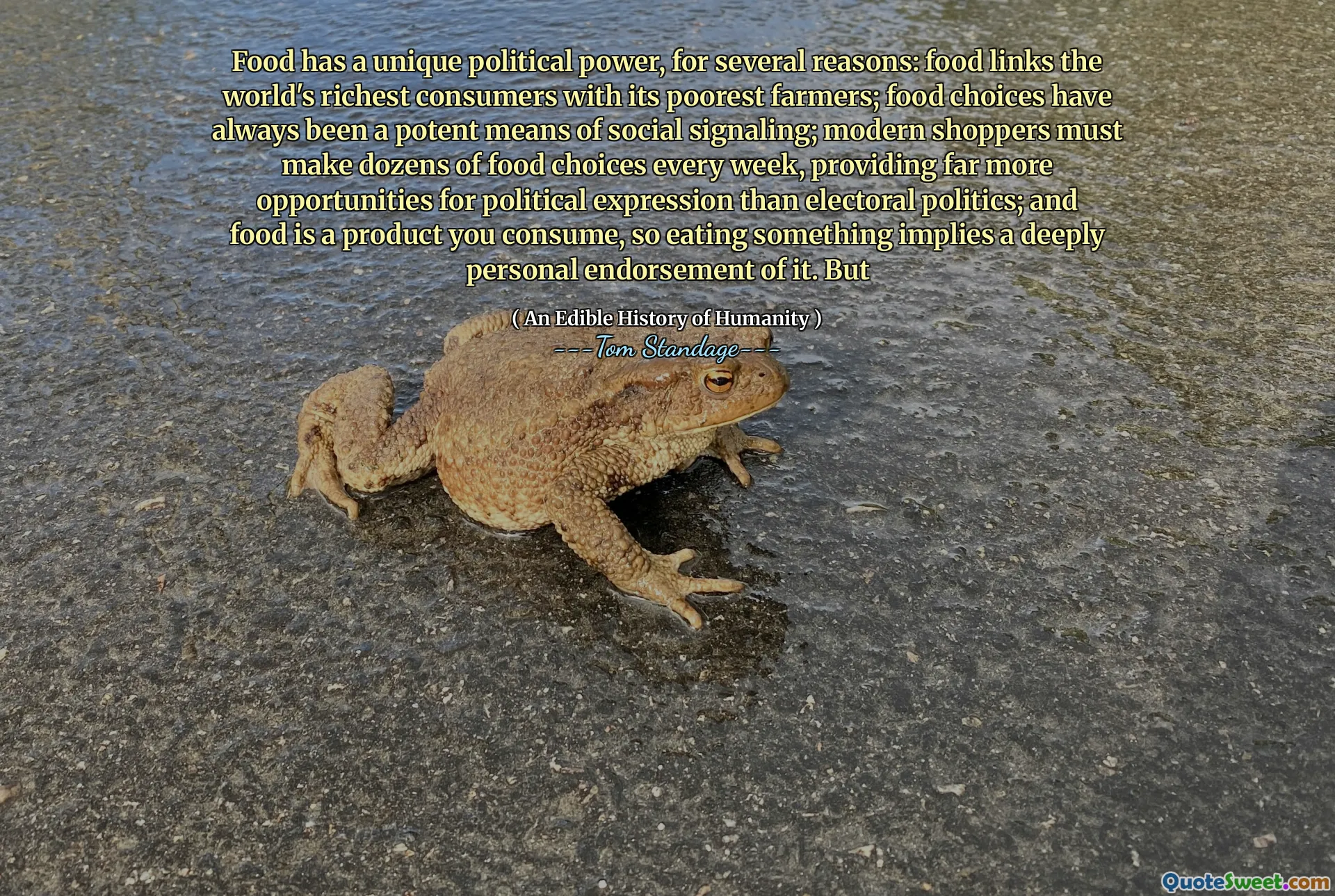
Food has a unique political power, for several reasons: food links the world's richest consumers with its poorest farmers; food choices have always been a potent means of social signaling; modern shoppers must make dozens of food choices every week, providing far more opportunities for political expression than electoral politics; and food is a product you consume, so eating something implies a deeply personal endorsement of it. But
This excerpt from Tom Standage's "An Edible History of Humanity" unveils the profound intersection between food and politics, presenting food not merely as sustenance but as a powerful vehicle for social and political expression. Food acts as a tangible connection between disparate socioeconomic groups: the wealthiest consumers influence the livelihood of the poorest farmers who produce their meals, highlighting the global interdependence inherent in our consumption choices. Furthermore, food serves as a social signal, a statement of identity, values, and even resistance. The choices made in the grocery aisle echo louder than traditional acts of political participation, such as voting, because they are frequent, personal, and impactful. The repeated selection or rejection of certain food products becomes a medium through which individuals articulate ethical positions, cultural affiliations, and environmental concerns. Moreover, because consuming food is an intimate human action, the endorsement lent through eating gains a personal and profound dimension. This perspective challenges the conventional view of politics as confined to formal arenas and underscores the power embedded in daily rituals like eating. It calls for a heightened awareness of the political dimensions of food: recognizing that each bite can be an act of solidarity, protest, or complicity. Standage's insight provokes us to reconsider the mundane as profoundly meaningful, urging a critical reflection on how our dietary choices echo through global social structures and power relations.






